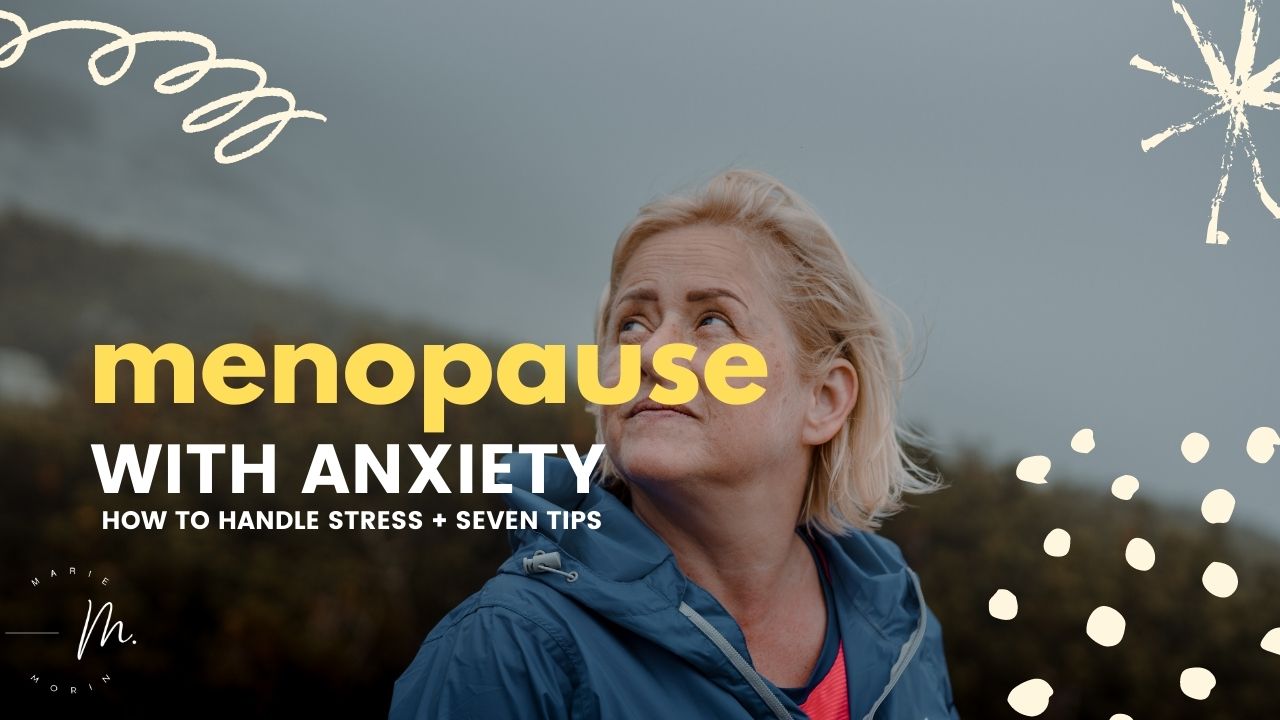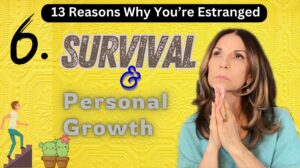Menopause and stress can get the best of us. Your daily routine and attitude to make your self-care a priority will help by providing a solid foundation. When stressful situations arise, having tools and habits will give a buffer to handle stress better. Stress and anxiety, while unsettling, can be helped with simple changes in daily changes. This article discusses how to manage stress after menopause with anxiety, including seven tips.
Everyone experiences anxiety; during menopause, it can come on unexpectedly and without cause. Breathing techniques and deep relaxation exercises can reduce stress and anxiety. Likewise, talking to a friend or someone you trust can be very comforting and grounding.
Menopause due to hormonal changes affects our sensitivity, and we become more reactive. We feel things more acutely. Our brains are directly involved in the amount of estrogen we have—lower estrogen results in symptoms such as mood changes, including anxiety.
The stress hormone cortisol is related to estrogen. During menopause, when estrogen decreases, cortisol increases. When cortisol decreases, estrogen rises. So, as we are in the transitional state of hormonal imbalance, stress management is critical to lessen symptoms such as anxiety.
Menopause can be responsible for unexplained anxiety, meaning anxiety is not a result of your stress or life circumstances. In either case, when we experience anxiety, whether it is due to menopausal symptoms or life circumstances, or both, anxiety is uncomfortable and troubling.
MENOPAUSE is the 12-month point after your last period. Menopause usually occurs between 45 and 55 years old, and symptoms can last between 7 and 14 years.
Each woman’s symptoms and experiences vary; the average age of menopause is 50 years old.
So how do we manage stress and anxiety symptoms? Self-care is key in dealing with stress and anxiety.
Seven Tips To Manage Menopause Stress with Anxiety
1. Eat Well to Be Well
The Mediterranean diet is rich in fiber and nutrients. Eating well is suitable for your physical health but also good for your mood. The Mediterranean diet is rich with colorful vegetables and fruits, hearty legumes, seeds, and nuts. Enjoy fish, seafood, and extra virgin olive oil. You will want to eat more of these nutrient-rich foods.
You can enjoy poultry, cheese, yogurt, milk products, and eggs in moderation. Reduce your red meat intake. Stay away from sugar, sodas, processed foods, processed meats, refined grains, and oils.
Many diets encourage nutritious eating foods; choose the one that works for you. Enjoy in moderation, or on a cheat day, that chocolate, cookie, or potato chips you love. Remember to do your best each day and plan for some wiggle room on occasion.
2. Go for a Walk
Walks, mornings are best but walk whenever you can. Movement is an excellent stress reducer, and when you get into a routine of moving most days, you won’t want to miss feeling the mood lift.
3. Stay Connected to Friends and Loved Ones
Make it a habit to call and visit friends. Conversations with those you trust can be very supportive. Menopause and the transitions women experience can mean stronger and closer relationships. Be sure to schedule time for fun with friends.
4. Sleep and Rest
Ramp up your self-care by getting enough sleep. Try a yoga Nidra or deep relaxation recording before bed to help you fall asleep and if you awaken during the night. Be kind to yourself by having a routine, avoiding naps. If you can’t sleep, get out of bed until you are sleepy. Stay away from screens and try not to drink caffeine in the afternoon or later; avoid alcohol, sugar, and processed foods that spike blood sugar. Make your bedroom comfortable and unique.
5. Drink Water
Yes, drink water! Make it a habit to drink water throughout the day. The recommended amount of water is between half an ounce and an ounce per pound of your weight. If you weigh 140 lbs., it would be roughly (8)16 ounces glasses. Staying hydrated is good for your body and your state of mind.
6. Breathing Techniques
Anxiety can feel awful but having tools to help lessen the sensations and thoughts can be highly effective. You can always use your breathing techniques whenever you need to calm down. The 4-7-8 breathing technique is easy to remember. It is best to practice this when you are relaxed to be familiar with its quieting effects.
The 4-7-8 breathing technique involves breathing in for 4 seconds, holding the breath for 7 seconds, and exhaling for 8 seconds. This technique can also help when you’re having trouble getting or staying asleep.
7. Know When to Get Help
Anxiety can be troubling and is very common during menopause. Anxiety can feel very unsettling and can be disturbing. It is all right to take some time to regroup by doing a breathing technique, calling a friend, staying hydrated, going for a brisk walk, praying, meditating, or doing a deep relaxation exercise.
When anxiety cuts into your daily functioning, it is time to consider getting help.
If you are experiencing anxiety that affects your ability to get through your daily activities, it is a good idea to reach out to a doctor and or therapist for help.
Someone you can talk to can help you with techniques, and emotional support can be enormously helpful.
Menopause can be difficult, and your daily self-care routine will provide a buffer to this stressful time. When stressful situations arise, having tools and habits will give a cushion to handle stress better. Stress and anxiety, while unsettling, can be helped with simple changes in daily changes. This article discusses how to manage stress after menopause with anxiety, including seven tips.





